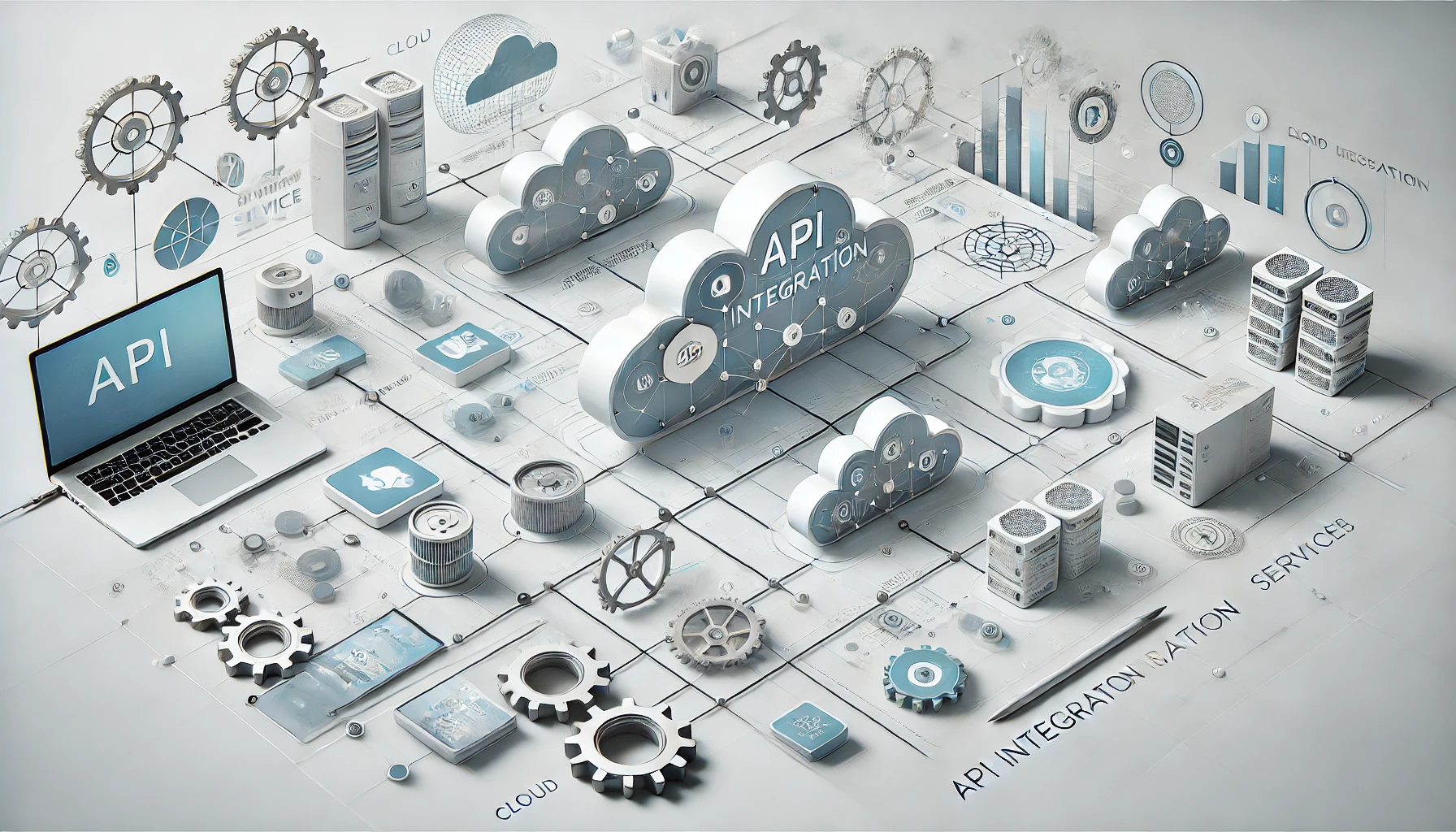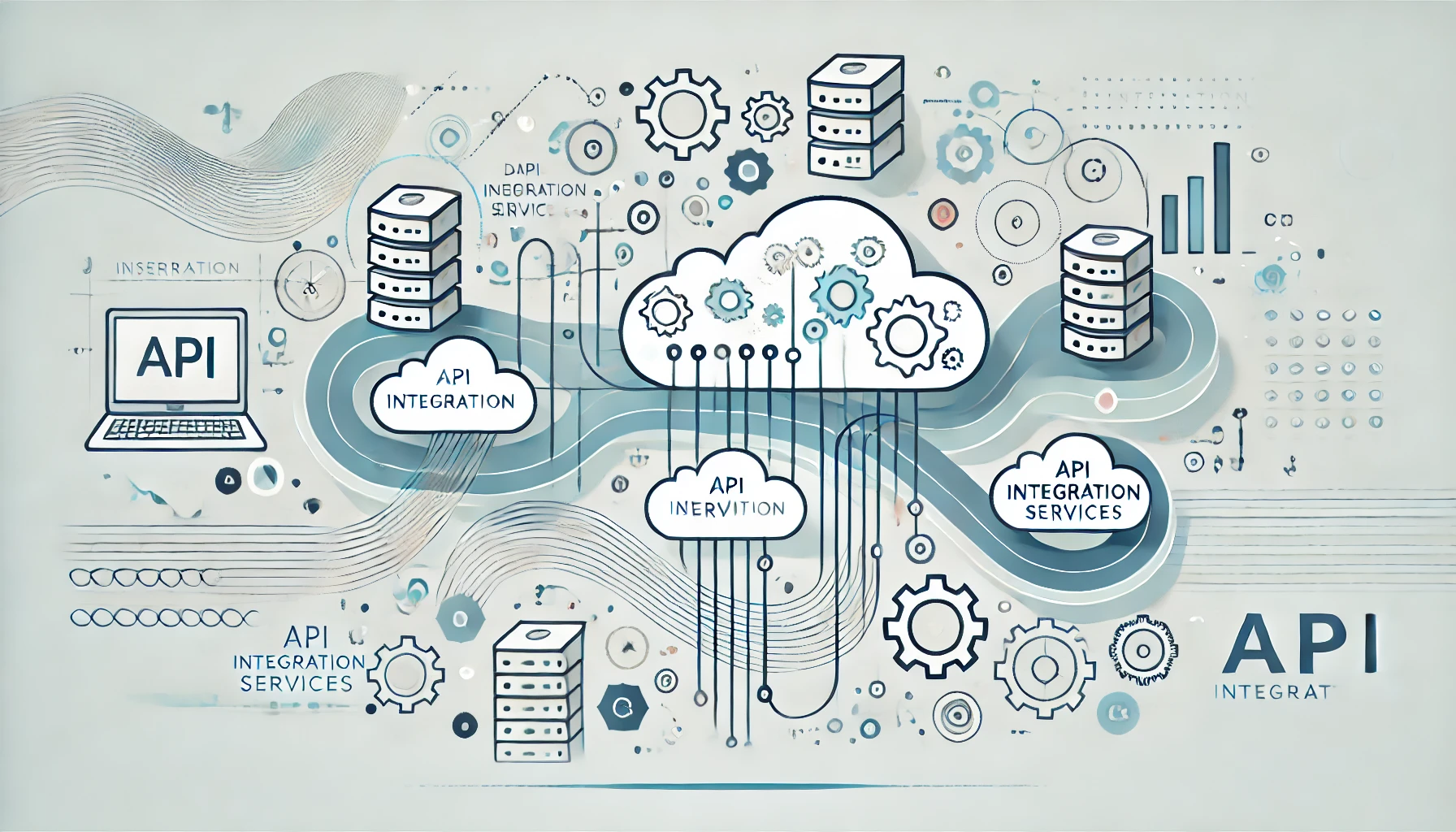Have you ever pondered what lies ahead in the realm of Advanced API integration services? Picture a landscape where six cutting-edge services are on the brink of reshaping how businesses connect and operate in the digital sphere. These advanced solutions promise not just evolution but a complete transformation of data connectivity processes, offering a glimpse into a future where efficiency and innovation converge seamlessly. Stay tuned to discover how these services are poised to revolutionize the very fabric of digital integration as we know it.
Emerging Trends in API Integration
In recent years, the landscape of API integration has been rapidly evolving, with new trends shaping the way businesses connect and utilize various applications and services. One of the key API integration challenges faced by organizations is the need to maintain security and data privacy while enabling seamless communication between different systems. To address this challenge, businesses are increasingly turning to advanced authentication methods such as OAuth 2.0 and API keys to ensure secure data transmission.
Moreover, as the demand for real-time data sharing grows, businesses are adopting event-driven architecture to facilitate faster information exchange between applications. By leveraging tools like webhooks and message queuing systems, companies can create a more responsive and efficient API integration environment.
Additionally, the rise of low-code platforms is empowering non-technical users to participate in API integration tasks, reducing the burden on IT departments and accelerating the development process. These solutions offer visual interfaces and pre-built connectors that simplify the creation of API workflows, enabling organizations to quickly adapt to changing business requirements.
Future of API Integration
As you look ahead to the future of API integration, automation is set to play a pivotal role in streamlining processes and enhancing efficiency. Innovations in cutting-edge integration technology are poised to revolutionize how systems communicate and interact, paving the way for seamless data exchange across platforms. Embracing these advancements will be key to staying competitive and meeting the evolving demands of a digitally interconnected landscape.
Automation in API Integration
With the rapid advancements in technology, the future of API integration lies in embracing automation. Automating workflows and streamlining processes are key components that will revolutionize the way businesses handle API integrations. By incorporating automation into API integration services, organizations can significantly increase efficiency and reduce the margin for error.
Automation in API integration allows for the seamless flow of data between different systems, eliminating the need for manual intervention at every step. This not only saves time but also ensures that data is transferred accurately and securely. By automating repetitive tasks, businesses can free up their resources to focus on more strategic initiatives.
Furthermore, automation enables real-time data synchronization, ensuring that information is up to date across all integrated platforms. This level of synchronization leads to improved decision-making processes and enhances overall operational effectiveness.
Cutting-edge Integration Technology
Embracing the next phase of API integration involves immersing yourself in the realm of cutting-edge integration technology. As businesses strive for seamless connectivity and efficient data exchange, staying abreast of the latest integration tools is paramount. Here are some key elements shaping the future of API integration:
- Real-time Connectivity: The ability to establish instant connections between systems enables swift data transfer and enhances operational efficiency.
- Intelligent Routing: Leveraging smart algorithms for routing data ensures that information reaches its destination efficiently, optimizing performance and resource utilization.
- Dynamic Data Mapping and Customized Workflows: By dynamically mapping data and tailoring workflows to specific business needs, organizations can streamline processes and extract maximum value from their integrated systems.
Incorporating these advanced technologies into your API integration strategy can pave the way for a more agile, responsive, and interconnected digital ecosystem. Stay ahead of the curve by harnessing the power of real-time connectivity, intelligent routing, dynamic data mapping, and customized workflows.
Seamless Data Exchange
To stay at the forefront of API integration advancements, you must delve into the realm of Seamless Data Exchange. This concept focuses on creating efficient data transfer mechanisms that enable real-time synchronization between various systems and applications. In today’s fast-paced digital landscape, the ability to exchange data seamlessly is crucial for businesses looking to streamline operations and enhance productivity. By implementing seamless data exchange protocols, organizations can ensure that information flows smoothly between different platforms, reducing delays and minimizing errors.
Efficient data transfer is key to optimizing processes and enabling better decision-making based on up-to-date information. Real-time synchronization further enhances this by ensuring that data is always current across all connected systems, eliminating the need for manual interventions to update records. With seamless data exchange, businesses can respond more rapidly to changing market conditions, improve customer experiences, and drive innovation through data-driven insights.
API Integration for AI and Machine Learning
Integrating APIs for AI and Machine Learning presents a critical challenge for businesses seeking to leverage advanced technologies in their operations. When delving into this integration, you must consider the following:
- Data Analytics: Utilizing APIs in AI and Machine Learning allows for in-depth data analytics, enabling businesses to extract valuable insights from vast amounts of information.
- Predictive Modeling: Through API integration, businesses can harness the power of predictive modeling to anticipate future trends, behaviors, and outcomes based on historical data.
- Real-time Decision Making: API integration in AI and Machine Learning empowers businesses to make real-time decisions by rapidly processing data and providing actionable insights instantaneously.
API Integration for Iot
In the realm of advanced API integration services, the landscape expands to encompass the realm of IoT, presenting a new set of challenges and opportunities for businesses. IoT connectivity and data analysis play crucial roles in this integration. Ensuring device interoperability is a key aspect that businesses need to address when integrating APIs for IoT devices.
API integration for IoT enables businesses to gather real-time insights from a multitude of connected devices. By utilizing APIs to connect various IoT devices, businesses can streamline operations and enhance decision-making processes. The ability to collect, analyze, and act upon data in real-time provides companies with a competitive edge in today’s fast-paced market environment.
Furthermore, advanced API integration services for IoT empower businesses to leverage the vast amounts of data generated by interconnected devices. By incorporating APIs into IoT ecosystems, organizations can extract valuable insights, optimize processes, and drive innovation across various industries. The seamless integration of APIs with IoT technologies opens up new possibilities for businesses looking to harness the power of real-time data analysis for strategic decision-making.
API Integration for Blockchain
When integrating APIs for blockchain technology, you’ll benefit from enhanced security measures and increased trust in transactions. Implementing secure integrations is crucial to safeguard sensitive data and ensure the integrity of the blockchain network. By leveraging blockchain API benefits, you can streamline processes and optimize efficiency within your system.
Blockchain API Benefits
Leveraging blockchain API integration can provide numerous advantages for businesses looking to enhance their operations and security measures. When considering the benefits of using blockchain API, businesses can tap into a wide array of opportunities that can revolutionize their processes and data security. Here are some key advantages:
- Enhanced Transparency: By utilizing blockchain API applications, businesses can achieve a higher level of transparency in their transactions and data sharing processes.
- Immutable Data Records: Blockchain API security ensures that data records are tamper-proof and transparent, providing a reliable source of truth for businesses.
- Smart Contract Automation: With blockchain API integration, businesses can automate contract execution through self-executing smart contracts, reducing the need for intermediaries and streamlining operations efficiently.
These benefits showcase how blockchain API integration can not only enhance security but also revolutionize the way businesses operate and interact with data and transactions.
Implementing Secure Integrations
Securing integrations for blockchain API requires a meticulous approach to ensure the reliability and immutability of data transactions. When it comes to implementing secure integrations, the focus lies on establishing a framework that guarantees secure data exchange and maintains the integrity of the blockchain network. Encryption protocols play a pivotal role in safeguarding the confidentiality and authenticity of data transmitted through APIs. By employing robust encryption mechanisms such as asymmetric encryption, digital signatures, and cryptographic hashing, organizations can fortify their API integrations against potential security breaches and unauthorized access.
Moreover, implementing secure integrations for blockchain API involves incorporating multi-factor authentication and access controls to restrict unauthorized entry points. These additional layers of security add an extra level of protection to the data being exchanged through APIs, ensuring that only authorized parties can access and interact with the blockchain network. By adhering to best practices in encryption protocols and security measures, organizations can establish a secure foundation for their blockchain API integrations, fostering trust and confidence in the integrity of their data transactions.
API Integration for Cloud Computing
Regularly, businesses are increasingly turning to cloud computing solutions to streamline their operations and enhance scalability. When it comes to API integration for cloud computing, there are several key aspects to consider:
- Cloud Migration: Moving existing systems and data to the cloud can be a complex process that requires seamless integration to ensure a smooth transition.
- Scalability Challenges: Cloud computing offers the advantage of easily scaling resources up or down based on demand, but integrating APIs effectively is crucial to ensure this scalability works efficiently.
- Security and Compliance: Ensuring that APIs integrated into cloud systems meet security and compliance standards is essential to protect sensitive data and maintain regulatory requirements.
Successful API integration for cloud computing involves careful planning, robust testing, and continuous monitoring to address scalability challenges and ensure a seamless transition during cloud migration. By prioritizing these aspects, businesses can leverage the benefits of cloud computing while maintaining operational efficiency and security.
Frequently Asked Questions
How Can Businesses Ensure Data Security in API Integrations?
To ensure data security in API integrations, you must implement robust data encryption protocols. Additionally, enforce strict access control measures to limit unauthorized access. By combining these two strategies, businesses can enhance their security posture and protect sensitive information effectively.
What Are the Potential Challenges of API Integration Scalability?
When it comes to API integration, scalability issues can arise, impacting performance. Ensure your systems can handle increased loads by optimizing resources, monitoring traffic, and implementing efficient caching strategies. Stay proactive to maintain seamless operations.
Are There Specific Regulations Governing API Integration Practices?
Navigating the intricate web of API integration requires keen awareness of regulatory compliance and industry standards. Your integration journey will flourish when aligning with these guidelines, ensuring seamless connectivity while abiding by established regulations.
How Can Companies Measure the ROI of API Integration Services?
To measure the ROI of API integration services, companies must conduct a cost benefit analysis comparing implementation costs to increased efficiency and revenue. Utilize performance metrics like response times, error rates, and adoption rates to assess effectiveness.
What Emerging Technologies May Impact the Future of API Integration?
As you explore the future of API integration, emerging technologies like AI integration and blockchain applications are poised to revolutionize connectivity. These advancements promise increased efficiency, security, and scalability, shaping a dynamic landscape for seamless data exchange.


